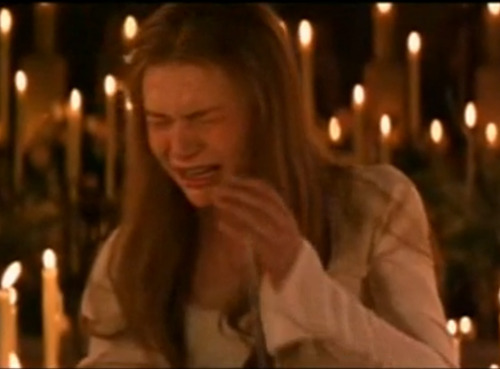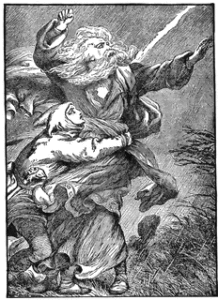A good video game starts with a good story, and anybody looking for a good story heads straight for Shakespeare. I’ve seen many video game versions of Hamlet over the years, and even wrote about virtual reality Shakespeare back in 2015. Now it looks like we’re one step closer.
TheatreVR has created a demo where you don the headset and play through the last scene of Hamlet. Check it out!
Companies have been working around this idea for years. Remember Second Life? There was a whole virtual reality Shakespeare troupe in there.
I think that the problem with VR has always been one of interface. There’s just too many ways that your body is interacting with reality – site, sound, smell, touch, not to mention peripheral vision, not to mention more specific senses like balance and proprioception (knowing where your limbs are in space). You can only do so much putting on a headset and some gloves.
Don’t get me wrong, I think that the OMG COOL! factor is very real. Even putting on something like Google Cardboard (not to mention Oculus Rift) is still something to be experienced before you’ll believe it. But the same was true of Pacman and DOOM once, too. The excitement wears off, and you’d better have a good story to tell when it does. From the perspective of the plot, yup, you’ve got Shakespeare. But have we just reduced it down to going through the motions? Escape the pirates, save Ophelia, kill Claudius? Or are we saying that one day we’ll act it out as well?
I’m not a “gamer” by modern standards, and will likely never have the necessary gear to play most of these. I’m hoping that eventually they become the new video arcade, and I can go somewhere like a Dave and Busters to try my hand for a couple bucks. I’m sure it’ll last 30 seconds, but maybe if I manage to kill Laertes and Claudius I can win enough tickets to a shot glass! 🙂




 Now if you told me, in a year when I was alive, that a Shakespeare production was sweeping the night? I’d watch the whole thing with popcorn. Probably call some friends.
Now if you told me, in a year when I was alive, that a Shakespeare production was sweeping the night? I’d watch the whole thing with popcorn. Probably call some friends.